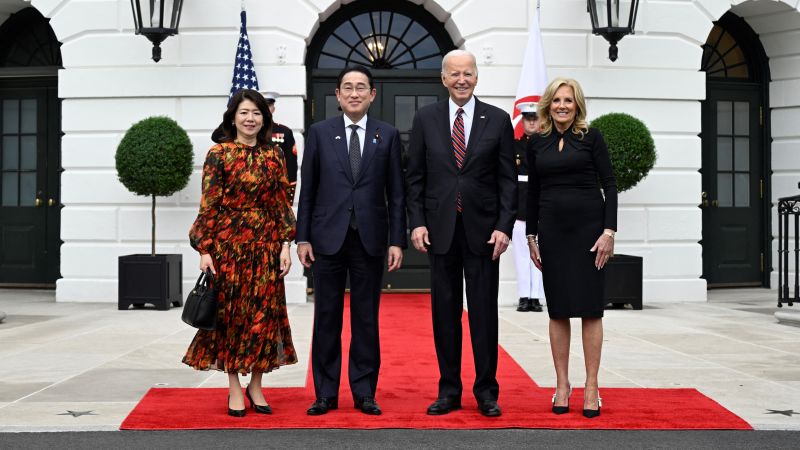President Joe Biden is hosting Japanese Prime Minister Kishida Fumio for a state visit to reinforce vital partnerships in the Indo-Pacific amid China’s growing military and economic power. The meeting will cover over 70 items in critical sectors, including changes to the US force structure in Japan, establishing a military industrial council, and integrating anti-missile defense between the US, Australia, and Japan. These updates to the military alliance will take time to implement, but will also focus on space collaboration and increasing people-to-people ties through joint research initiatives and student exchanges.
While the US and Japan are strengthening their cooperation, there have been recent differences on the economic front, particularly regarding Japan’s efforts to purchase US Steel. Despite these disagreements, officials do not expect Biden to address the issue directly, emphasizing the broader relationship between the two countries. The upcoming leaders’ summit between the US, Japan, and the Philippines aims to draw Pacific allies closer in response to China’s aggression and North Korea’s nuclear provocations. The goal is to counter Chinese efforts to isolate American allies like Japan and the Philippines through a strategic multilateral approach.
Japan has played a central role in Biden’s alliance-building efforts in the Indo-Pacific, with Prime Minister Kishida showing support for Ukraine amid Russia’s invasion and committing to increase defense spending and acquire American missiles. Before taking office, Biden and his national security adviser focused on reestablishing partnerships in the Indo-Pacific to counter China’s influence and build a network of allies. The visit will emphasize a significant symbolic gesture from Japan, with plans to provide new cherry tree saplings to replace trees that will be cut down around the Tidal Basin in Washington. This act reflects the historic diplomatic gift of cherry trees from Japan to the US.
Amid discussions on defense and diplomatic agreements, Biden’s alliance with Japan is celebrated, but there is also concern among American allies about the potential return of Donald Trump to the Oval Office and its impact on US foreign relations. The uncertainty over future US policy and engagement in international affairs is a source of anxiety for many capitals, leading to questions about the continuity of bipartisan foreign policy efforts. Despite these concerns, the focus remains on strengthening alliances and partnerships in the Indo-Pacific to counter challenges posed by China and North Korea. The commitment to maintaining strong relationships and strategic cooperation is a cornerstone of Biden’s foreign policy approach.


